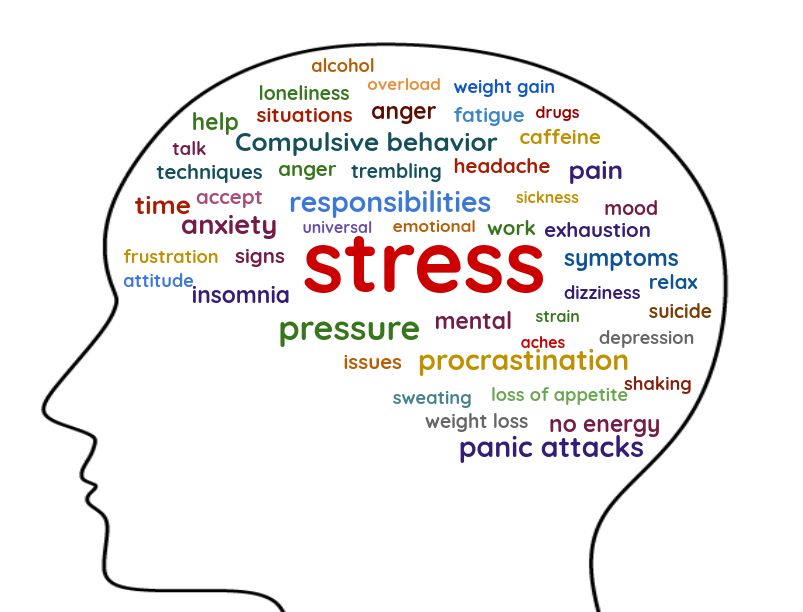Got Stress?
A survey of WCHS students and the different types of stress they are dealing with.
Stress is something that we all have to deal with. There is no one in this world that stress has not affected in some way, shape, or form. So what exactly is “stress”? Stress is a state of emotional or mental pressure resulting from very challenging situations. Essentially, stress is a strain caused by difficult situations. Stress can be caused by many things: work, family issues, responsibilities, illnesses, etc., all can cause stress. Below is an infographic of the different stresses that are experienced by the students of WCHS.
Warning Signs of Stress
There are many, many signs of stress. It all depends on how stressed someone is. For people that are more stressed, the signs will be harsher and more obvious, and vice versa.
Symptoms include:
- Dizziness
- General aches and pains
- Clenched jaw
- Headaches
- Indigestion and loss of appetite
- Sleeping problems
- Racing heart
- Cold and sweaty palms
- Tiredness or exhaustion
- Trembling/shaking
- Weight gain/loss
- Lack of energy or focus
- Use of alcohol or drugs to relax
- Frequent sicknesses
- Panic attacks
- Excess anxiety
- Increased anger and frustration
- Depression or suicidal thoughts
- Frequent or wild mood swings
- Feeling overloaded
- Feelings of loneliness or worthlessness
- Obsessive or compulsive behavior (more info on this below)
Stress and Health
Stress is linked to the 6 leading causes of death: heart disease, cancer, lung ailments, accidents, cirrhosis of the liver, and suicide.
Tips on Reducing Stress
When stressed, it is vital to relieve the stress. Below are some ideas on how to deal with stress.
- Keep a positive attitude
- Accept things the way they are
- Relaxation techniques
- Exercise
- Eat healthily
- Learn time management
- Learn how to say no to things
- Make time for hobbies and interests
- Get enough rest and sleep
- Spend time with loved ones
- Talk about it
- Set goals and priorities
- Keep a sense of humor
- Avoid tobacco use, excess caffeine and alcohol, and the use of illegal substances.
Compulsive Behavior
Compulsive behavior is consistently doing things even though they result in negative outcomes. For example, things such as constantly eating; using alcohol, tobacco, and drugs; shopping; etc.
Stress becomes harmful when people start doing these things to try to relieve their stress. Instead of reducing the stress and relaxing the person, compulsive behaviors tend to keep the body in a stressed state and cause more problems. The stressed person relies more and more on the compulsive behavior.
Overall, these compulsive and inactive ways to relieve stress might seem relaxing or stress-relieving, but they might increase your stress levels in the long run.
When to Get Help
If you’ve tried to relieve your stress but the symptoms continue, it may be time to see a doctor about it. They may want to check for other possible causes. If you know for sure that it is stress, you may want to look into counseling or therapy that will help you cope with your stress. Remember, stress affects everyone, so you’re not alone!

Victoria Korchuk is a freshman at Woodford County High School. This is her first year on The Jacket Journal. She loves to read all kinds of books and can...







